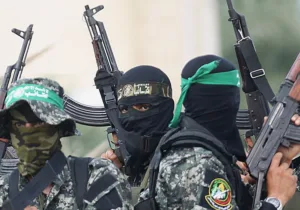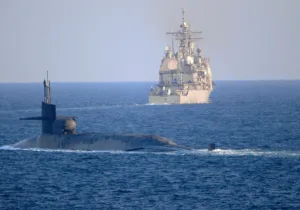United States forces are sweating, bleeding, craving sleep, missing their wives, their children, and their friends while serving in Niger. And, in the case of Sgt. La David Johnson, Staff Sgt. Bryan Black, Staff Sgt. Jeremiah Johnson, and Staff Sgt. Dustin Wright, they are sacrificing their lives.
The tragic deaths of these four special operators occurred when Islamist militants ambushed their 12-man Green Beret-led team on October 4th, 2017.
The conflict has brought our operations in Niger under a national spotlight. Members of Congress who claim they did not know we had troops in Niger are either stunningly forgetful or are being insincere. There have been hearings on our operations in Africa, and the Commander of Africa Command, General Thomas D. Waldhauser, discussed Niger. If Congressmen truly didn’t know we had troops in Niger, this was not due to a lack of transparency on the part of the Pentagon. All of this is available information for those whose responsibility it is to authorize and appropriate the funds necessary to equip U.S. forces we send into harm’s way.
But, for the rest of the country busy doing work unrelated to governance and warfighting, the fact that U.S. forces are in Niger might understandably be genuine news to them. So why are troops there? The short answer is: we have less than 1,000 well-trained, highly capable American servicemen in Niger working alongside its government to help it eliminate the presence of Islamist militants, Boko Haram and ISIS-West Africa. Should Islamist militants overrun the Niger government, they could establish a new base of operations from which to train, equip, and grow in number and capability in order to launch attacks outward against U.S. allies and the U.S. homeland.
Mosul in Iraq and Raqqa in Syria were bastions of Islamic State militants, up until U.S. forces together with our regional allies, most notably Iraqi forces and Kurdistan’s Peshmerga, liberated them. Retaking those cities is a major defeat for ISIS. Our victory decimates the supposed caliphate’s territorial claims from which fighters were launching operations throughout the region, and it also communicates, “No, God is not ensuring the survival of these brutal murderers.” This message takes away some of the terror group’s draw for would-be recruits.
Despite these military successes—and they are great successes—they do not portend the total and permanent defeat of ISIS. We are in a long, long war with Islamist militants. With this loss of territory, fighters, and overall psychological momentum, ISIS has tried to establish footholds throughout West Africa. If ISIS is permitted to metastasize in Niger or one of the other 53 African nations where there are U.S. forces, the threat to Americans greatly increases.
The mission in Niger is not the result of lofty nation-building or democracy-exporting ambitions, nor does it belong uniquely to the Obama or Trump administration. It has been a reality for years. As the United States finishes this phase of the anti-ISIS campaign, conflicts like the one in Niger may be more frequent. Even an “America First” oriented foreign policy should, and in fact seems to, recognize this. If our troops weren’t there, it is likely a much larger deployment of U.S. forces would be required in the future, at a much higher cost in blood and treasure. The American forces who died fighting ISIS fighters in Niger deserve our gratitude, their families our compassion and help, and their mission in the African theater of operations our support.
—
Rebeccah L. Heinrichs, a contributing editor at Providence, is a fellow at Hudson Institute where she provides research and commentary on a variety of international security issues and specializes in deterrence and counter-proliferation. She is also the vice-chairman of the John Hay Initiative’s Counter-proliferation Working Group and the original manager of the House of Representatives Bi-partisan Missile Defense Caucus.
Photo Credit: Nigerien service members react to contact during Exercise Flintlock 2017 in Diffa, Niger, Mar. 3, 2017. Flintlock bolsters partnerships between African, European and North American Special Operations Forces which increases their ability to work together in response to crises. U.S. Army photo by Spc. Zayid Ballesteros for U.S. Africa Command.







 Sponsor a student for Christianity & National Security 2024
Sponsor a student for Christianity & National Security 2024